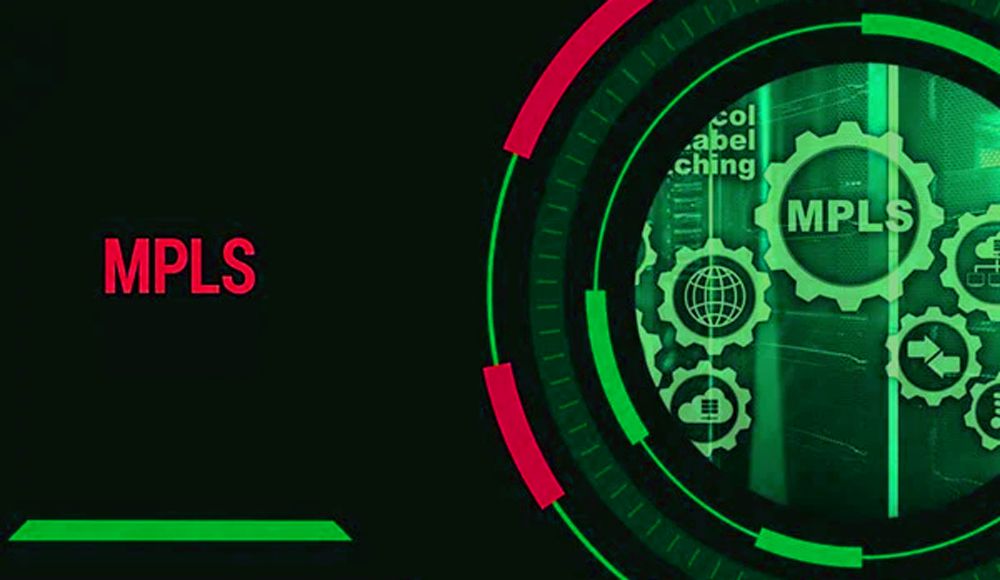In today’s interconnected world, businesses are constantly searching for optimal solutions to maintain flexibility, security, and high performance within their network environments. Two of the most commonly used networking technologies for connecting remote offices and branches are MPLS (Multiprotocol Label Switching) and VPN (Virtual Private Network). While both technologies serve the purpose of connecting business networks, they differ significantly in how they operate and their applications. So, can MPLS replace VPN? In this article, we will delve into the differences between MPLS and VPN, exploring the advantages and limitations of each, to better understand which solution might be the best fit for a business’s needs.
1. Basic Definitions of MPLS and VPN
MPLS (Multiprotocol Label Switching) is a data-carrying technique that assigns labels to data packets, which are then forwarded based on these labels rather than the packet’s IP address. This technique optimizes the routing of data across a network, reducing latency and improving the speed of packet processing. This solution is often used in large-scale wide-area networks (WANs) and can support multiple types of network protocols.
VPN (Virtual Private Network), on the other hand, is a technology that creates a secure and encrypted connection between two endpoints in a network, ensuring data security as it is transmitted over public networks like the internet. VPNs can be implemented using various protocols such as IPsec, SSL, or PPTP, and are commonly used to connect remote users to corporate networks or link multiple office locations.
2. Differences Between MPLS and VPN
2.1. Network Architecture
- MPLS: is a label-based routing solution where packets are marked with a label at the entry point of the network. These labels determine the packet’s path across the network, allowing for optimized routing and faster data transmission. Networks are typically managed by service providers and are used to connect various business locations via a private network.
- VPN: A VPN operates as a layer of security over a public network like the internet. When a business uses a VPN, data is encrypted to ensure privacy as it travels over the public internet. There are different types of VPNs, including Site-to-Site VPNs, which connect office locations, and Remote Access VPNs, which allow remote workers to securely access the company’s internal network.

2.2. Security
- MPLS: is considered a more secure option since it is a private network, separate from the public internet. As data does not traverse public networks, it is inherently more protected from external threats. MPLS also often employs additional security features such as IPsec to encrypt data as it travels within the network.
- VPN: VPNs rely on encryption to secure data transmitted over public networks. While VPNs can provide high levels of security, their effectiveness depends on the strength of the encryption protocol in use (such as IPsec or SSL/TLS) and how the VPN is implemented. Since data still passes over the internet, VPNs are more vulnerable to potential attacks than MPLS networks.
2.3. Reliability and Performance
- MPLS: One of the primary advantages of MPLS is its reliability and performance. Since MPLS operates over private networks rather than the internet, it is not affected by the congestion, latency, or performance issues that can impact public networks. MPLS can also support Quality of Service (QoS), allowing businesses to prioritize traffic based on the importance of specific applications (e.g., VoIP, video conferencing, or cloud-based services).
- VPN: VPNs, on the other hand, are limited by the performance of the underlying internet connection. Data travels over public internet connections, meaning that performance can be impacted by factors like bandwidth, latency, and network congestion. Encryption and decryption of data can also introduce latency, especially when using resource-intensive security protocols.
2.4. Cost of Implementation and Maintenance
- MPLS: is generally more expensive to implement because it requires leasing dedicated lines from service providers. Additionally, businesses must bear the costs of maintaining and upgrading the MPLS infrastructure. However, these costs can be justified for enterprises that require high levels of performance, security, and reliability, particularly in mission-critical applications.
- VPN: VPNs are typically much cheaper than MPLS because they leverage existing internet infrastructure. Businesses only need to invest in VPN software and devices, which makes it a cost-effective solution, especially for smaller businesses or organizations with remote workers. The ongoing maintenance and operational costs of VPNs are also lower compared to MPLS.
3. When Should Businesses Use MPLS or VPN?
3.1. When to Use MPLS?
MPLS is ideal for larger organizations that require high security, performance, and reliability. These businesses often have multiple offices or branches in different locations, and they need to ensure that their data is transmitted quickly and securely across their network. This solution is also particularly beneficial for companies that run latency-sensitive applications such as VoIP or video conferencing, where high performance and uptime are crucial.
This service is also a good choice for companies with complex networking needs that demand network segmentation, traffic prioritization, and better management of bandwidth and performance across a wide-area network (WAN).

3.2. When to Use VPN?
VPNs are a better option for smaller businesses or those that don’t have the same stringent demands for network reliability and performance. Companies with remote workers or multiple office locations that need a cost-effective, secure way to connect to their internal networks can greatly benefit from VPNs. If your business does not need to prioritize mission-critical applications or manage large-scale data transmission, a VPN may provide the security and flexibility you need at a fraction of the cost of MPLS.
VPNs are also ideal when you need point-to-point connectivity between branch offices or want to provide remote employees with secure access to company resources over the internet.
4. Comparison of MPLS and VPN for Specific Scenarios
| Criteria | MPLS | VPN |
|---|---|---|
| Performance | High, due to private network infrastructure | Lower, dependent on public internet bandwidth and latency |
| Security | High, with private network and encryption options | High, with encryption over the internet |
| Cost | Expensive, requires leased lines and dedicated infrastructure | Affordable, leverages existing internet connections |
| Management | Requires specialized network management and expertise | Easier to implement and manage, fewer technical requirements |
| Scope of Use | Best for large enterprises with many remote offices or branches | Ideal for small to medium businesses, remote workers |
5. Conclusion
So, can MPLS replace VPN? The short answer is no, as both technologies serve different purposes and have unique advantages. MPLS is generally better suited for large businesses with demanding performance, reliability, and security requirements, particularly those with multiple locations or critical applications. On the other hand, VPN is more cost-effective and sufficient for smaller businesses or companies with remote workers that need a secure, simple solution for connecting to their internal network.
When choosing between MPLS and VPN, businesses should consider factors such as budget, network performance requirements, security needs, and the scale of their operations. Both MPLS and VPN play crucial roles in modern enterprise networking, and the decision between the two will depend on the specific goals and constraints of the organization.
* Contact us:
- Email: dc@dcx.com.vn
- Phone: 0333361599
- Facebook: https://www.facebook.com/DCX.Tech.Solutions/
